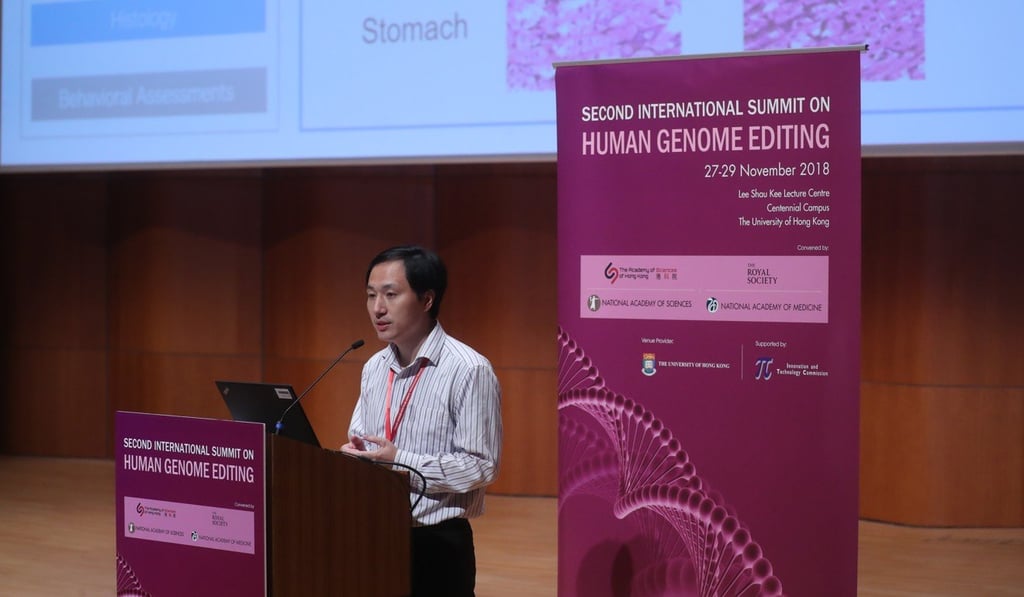Advertisement
Top scientists call for worldwide ban on human embryo gene edits after rogue Chinese scientist He Jiankui’s experiments
- Editorial co-signed by researchers and ethicists comes four months after news of genetically altered twin babies roiled scientific community
- Scientist claimed he made newborn girls immune to HIV infection via gene-editing technique known as CRISPR
Reading Time:1 minute
Why you can trust SCMP

This story is published in a content partnership with POLITICO. It was originally reported by Sarah Owermohle on politico.com on March 13, 2019.
Scientists and ethicists from multiple countries called for an international moratorium on editing the genetic makeup of embryos.
Their co-signed editorial in the journal Nature comes four months after researchers around the world were shocked by reports that a scientist in China had edited the embryos of twin girls who were later born with the alterations. The groups called for an international agreement on whether and how to edit embryos and inheritable DNA.
Several US scientists signed the editorial but accompanying correspondence co-authored by NIH Director Francis Collins said the institutes “support” a global moratorium.
Advertisement
“This unexpected and unwelcome revelation roiled the scientific community and the general public, and crystalised the need for guiding international principles,” Collins said in a statement. He condemned the practice when the births were first announced.

Advertisement
The Chinese doctor, He Jiankui, claimed in November that he manipulated the embryos with a gene-editing technique known as CRISPR to make them immune to HIV infection.
Advertisement
Select Voice
Choose your listening speed
Get through articles 2x faster
1.25x
250 WPM
Slow
Average
Fast
1.25x